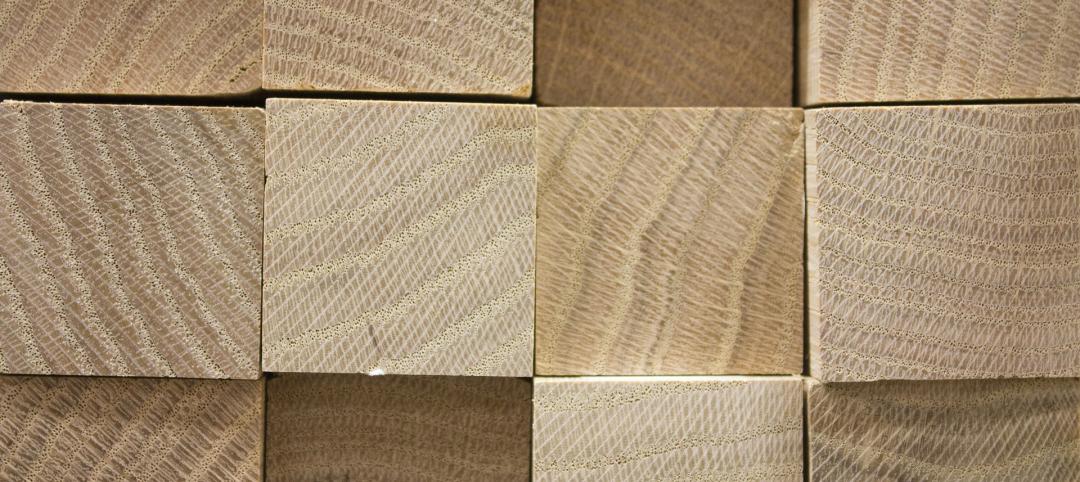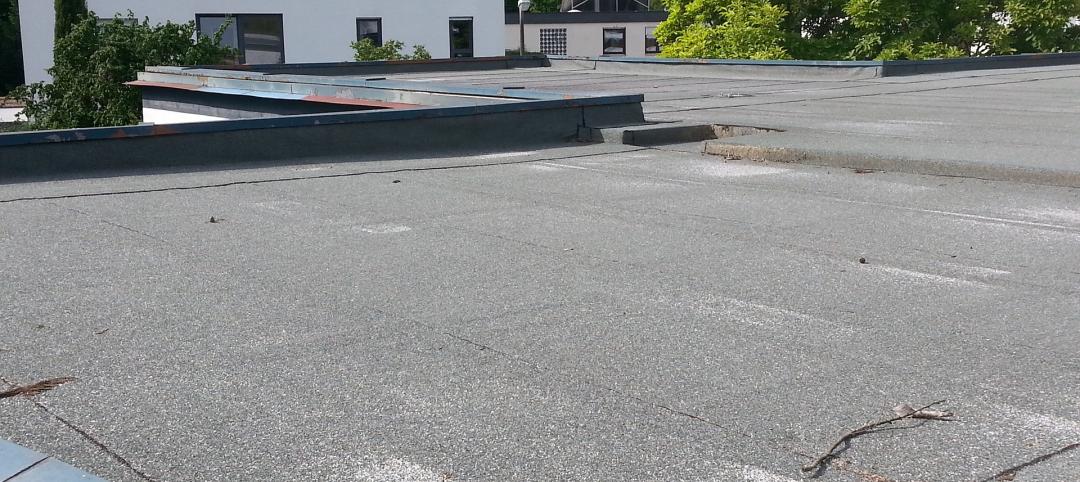The jury for the American Institute of Architects (AIA) Upjohn Research Initiative, a joint program of the College of Fellows and the Board Knowledge Committee to support knowledge sharing between practitioners and academicians, has announced the four projects selected to receive grants. The purpose of this grant, now in its ninth year, is to provide base funds for applied research projects that advance professional knowledge and practice. The 18-month long project grant qualifies recipients to have their findings and outcomes published both electronically and in a nationally distributed publication. The total award of $100,000 will be spread across the selected proposals. The four selected projects are listed below.
Auto-Shading Windows: Smart Thermobimetal Solar Blinds
Principal Investigator: Doris Sung, AIA (DOSU Studio Architecture)
With pressure from the outdoor environment such as swells in temperature, humidity, precipitation and demands from the interior to achieve variable comfort standards and evolving uses, buildings need to adjust automatically. By incorporating new, smart materials and creative assemblies, buildings now have the potential to modulate changes throughout the day. Smart materials require no added energy or computer controls. Thermobimetal is a smart material that automatically curls when heated and, when utilized strategically, can help liminal building surfaces automatically and optimally respond to temperature changes and direct sunlight. This proposal seeks funding to build a window prototype that will automatically block up to 90 percent of the sunlight entering a building while retaining a high level of visibility and view throughout the day. The net effect of this zero-energy system is energy and cost savings.
Building Resilience: A Tool for Planning & Decision-making
Principal Investigator: David Fannon, AIA (Northeastern University)
Recent events show the urgency of designing resilient new buildings and upgrading existing ones. However, it is not clear which combinations of attributes make buildings more likely to maintain useful function and adapt in the face of disturbances. Furthermore, buildings can be assessed based on the impacts from and contributions they make to the robustness, redundancy, resourcefulness and rapidity to recover of surrounding urban ecological systems. These are critical questions for architects, communities, and businesses, and yet there is very little information to guide decision-making about resilient building attributes. To meet this need, this project will develop a web-based tool to evaluate and compare multiple dimensions of resilience and sustainability in buildings, including technical and socio-ecological performance, energy use, and lifecycle impacts.
Clothesline Sunpower: PV Papeles
Principal Investigator: Kristina Yu, AIA (University of New Mexico; McCLAIN + YU Architecture & Design)
This proposal aims to demonstrate the design opportunities of the mobile installation of a new system of photovoltaics also known as solar panels. This investigation will examine the energy capture difference between the separate but related test project of the microelectronic photovoltaic (MEPV) taut mechanical shade system vs. this proposal’s novel design for a mobile simple install of a Clothesline Sunpower: PV Papeles MEPV system. The Clothesline Sunpower: PV Papeles MEPV system aims to capture sufficient to abundant energy to supply a home without the cumbersome and panelized PV panels which require extensive installation and space requirements. The MEPV technology affords a higher level of energy capture while providing a new tactility and versatile flexibility uncommon to PV systems today. The researchers aim to simplify the component pieces of the current MEPV taut shade and to create a functional temporary MEPV system that has the duality of ‘ease of install’ and ‘ease of use.’ Much like placing clothes on a line to dry in limited vertical spaces, the panels, with visual and high efficient variety, can be placed outside to collect the sunpower to harness and store within the interior space.
Point-of-Decision Design (PODD) to Support Healthy Behaviors in the College Campuses
Principal Investigators: Upali Nanda, Assoc. AIA, and Michelle Eichinger (Center for Advanced Design Research and Evaluation – CADRE/HKS; Designing4Health)
This research study aims to address the causes of weight gain, also known as obesogenic, in students on college campuses by answering the question: how can we make the healthy choice an easy choice through the design of critical point of decision prompts? The hypothesis is that well-designed point of decision prompts can promote healthier choices by students that can have a ripple effect on mental and physical health related to obesity. At each point of decision, design can help/hinder the healthier choice. There is a need to collate the vast information in planning and public health domains on a range of successful point of decision prompts and translate it into architectural guidelines that help define the edge condition for critical point of decision prompts. The researchers propose to develop a POD (point of decision) Design Guide and Analysis Tool.
Related Stories
Senior Living Design | Apr 24, 2024
Nation's largest Passive House senior living facility completed in Portland, Ore.
Construction of Parkview, a high-rise expansion of a Continuing Care Retirement Community (CCRC) in Portland, Ore., completed recently. The senior living facility is touted as the largest Passive House structure on the West Coast, and the largest Passive House senior living building in the country.
Hotel Facilities | Apr 24, 2024
The U.S. hotel construction market sees record highs in the first quarter of 2024
As seen in the Q1 2024 U.S. Hotel Construction Pipeline Trend Report from Lodging Econometrics (LE), at the end of the first quarter, there are 6,065 projects with 702,990 rooms in the pipeline. This new all-time high represents a 9% year-over-year (YOY) increase in projects and a 7% YOY increase in rooms compared to last year.
Architects | Apr 24, 2024
Shepley Bulfinch appoints new Board of Director: Evelyn Lee, FAIA
Shepley Bulfinch, a national architecture firm announced the appointment of new Board of Director member Evelyn Lee, FAIA as an outside director. With this new appointment, Lucia Quinn has stepped down from the firm’s Board, after serving many years as an outside board advisor and then as an outside director.
ProConnect Events | Apr 23, 2024
5 more ProConnect events scheduled for 2024, including all-new 'AEC Giants'
SGC Horizon present 7 ProConnect events in 2024.
75 Top Building Products | Apr 22, 2024
Enter today! BD+C's 75 Top Building Products for 2024
BD+C editors are now accepting submissions for the annual 75 Top Building Products awards. The winners will be featured in the November/December 2024 issue of Building Design+Construction.
Laboratories | Apr 22, 2024
Why lab designers should aim to ‘speak the language’ of scientists
Learning more about the scientific work being done in the lab gives designers of those spaces an edge, according to Adrian Walters, AIA, LEED AP BD+C, Principal and Director of SMMA's Science & Technology team.
Resiliency | Apr 22, 2024
Controversy erupts in Florida over how homes are being rebuilt after Hurricane Ian
The Federal Emergency Management Agency recently sent a letter to officials in Lee County, Florida alleging that hundreds of homes were rebuilt in violation of the agency’s rules following Hurricane Ian. The letter provoked a sharp backlash as homeowners struggle to rebuild following the devastating 2022 storm that destroyed a large swath of the county.
Mass Timber | Apr 22, 2024
British Columbia changing building code to allow mass timber structures of up to 18 stories
The Canadian Province of British Columbia is updating its building code to expand the use of mass timber in building construction. The code will allow for encapsulated mass-timber construction (EMTC) buildings as tall as 18 stories for residential and office buildings, an increase from the previous 12-story limit.
Standards | Apr 22, 2024
Design guide offers details on rain loads and ponding on roofs
The American Institute of Steel Construction and the Steel Joist Institute recently released a comprehensive roof design guide addressing rain loads and ponding. Design Guide 40, Rain Loads and Ponding provides guidance for designing roof systems to avoid or resist water accumulation and any resulting instability.
Building Materials | Apr 22, 2024
Tacoma, Wash., investigating policy to reuse and recycle building materials
Tacoma, Wash., recently initiated a study to find ways to increase building material reuse through deconstruction and salvage. The city council unanimously voted to direct the city manager to investigate deconstruction options and estimate costs.

















